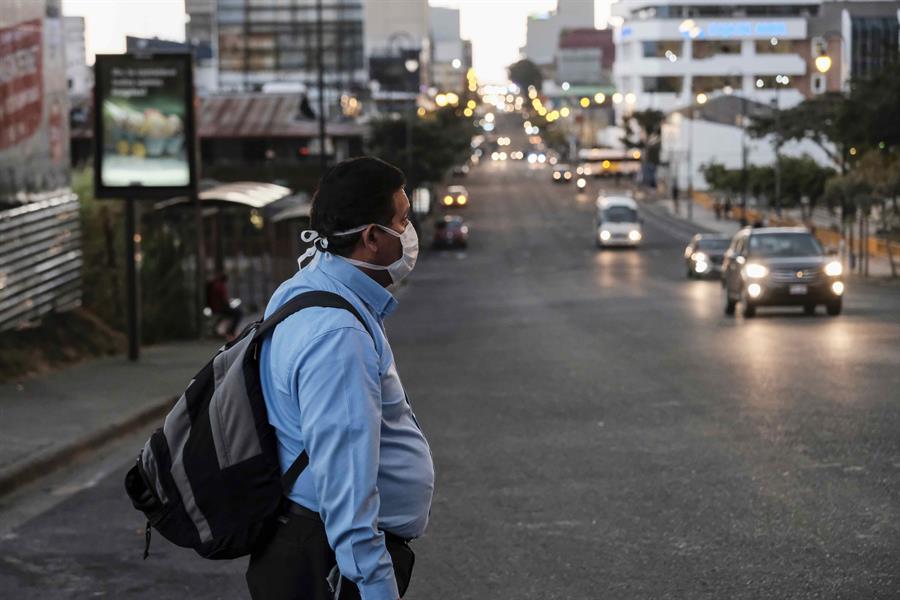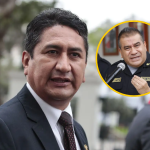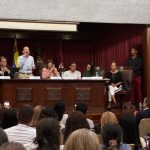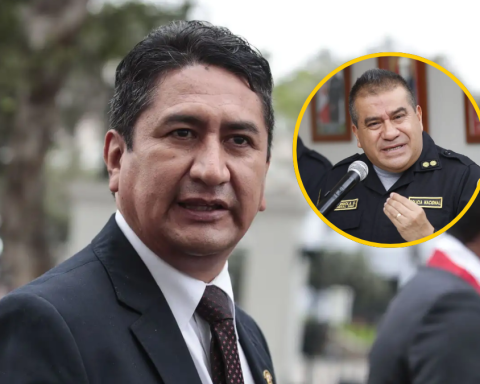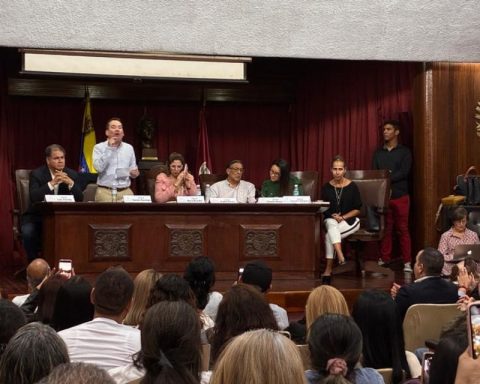Next Sunday, April 3, Costa Rica will experience the second electoral round, but there is no clear trend in the intention to vote of the 3.5 million Costa Ricans summoned to the polls, who will have to choose between former president José María Figueres, of the National Liberation Party (PLN), and former Minister of Finance, Rodrigo Chaves, of the Social Democratic Progress Party (PPSD), for which Costa Rican analysts value that “there is a strong rejection of the candidacies” and that to a certain extent this is “an election in resignation mode”.
The latest survey of Center for Research and Political Studies (CIEP) of the University of Costa Rica (UCR), held between March 24 and 28, indicates that the gap between the two candidates presidential election continues to close as the ballot draws near. Chaves remains in the lead with 41.4% among those determined to vote and Figueres follows closely with 38%, a The week before, the PPSD candidate had 43.3% and the PLN candidate 38.1%. In both cases, the candidates were tied due to the poll’s margin of error.
This situation reflects the “high uncertainty” and the “change in the preferences of the voters in the face of the elections”, pointed out the coordinator of the CIEP survey, Ronald Alfaro, during an interview he gave to the program Tonight together with Costa Rican political scientist Constantino Urcuyo Fournier.
Alfaro appreciated that As the distance between the two presidential candidates shortens, “it would be very risky to propose a definitive result”, especially since the dynamics of the election have been “very changeable”, and as the vote approaches, the percentage of undecided people also increases, which Despite being willing to vote, they do not decide on either of the two candidates. “It is an election in which there is a strong rejection of the candidacies, there is not such marked enthusiasm, they are not exciting the voter, for many it is an election in resignation mode, and that can lead to an important group of undecided rather He said not to participate,” he commented.
The relationship with Nicaragua
During the last few weeks, in the presidential campaign and even in the candidates’ debates, the accusations of corruption, dark management of electoral financing and complaints of sexual harassment. However, little reference has been made to the migratory situation of at least 350,000 Nicaraguans residing in Costa Rica and the relationship that the new government will have with the Daniel Ortega regime.
For Urcuyo, the little reference that both candidates presidential decisions have been made about the crisis in Nicaragua is because neither of them wants to start their government “fighting with Daniel Ortega”. However, he appreciated, “both have reaffirmed the democratic values of Costa Rica, they have reaffirmed the need for a policy regarding migration and above all I believe that the attitude towards Ortega will go through the alliance that has been formed of prosperity and democracy with the Dominican Republic and with Panama.
Both Chaves and Figueres know that the relationship with Ortega “is not an issue that divides” Costa Ricans, warned Urcuyo, “all of Costa Rica agrees that there is a tyranny, a cruel dictatorship and no one is going to defend to Daniel Ortega, but Costa Rican diplomacy cannot start an open confrontation with the dictatorial regime of Nicaragua,” he added.
Likewise, Alfaro agreed that the absence of the migratory issue in the presidential debates and government plans is due to the fact that It is not an element that polarizes Costa Rican society and it is not going to take the campaign in one direction or another.
The proposals for change
Urcuyo valued that in this election the Costa Ricans they must decide between “two great tendencies of change”. On the one hand, the simple change of a Government with poor appreciation by the citizens and, on the other, radical change. “This has motivated, for example, that Rodrigo Chaves’ campaign is oriented towards saying “in the last 30 years we have done things wrong, let’s change all things”, and the Figueres campaign -already in recent weeks- has reoriented and says: “there are things to change, these are the things that must be reformed,” he specified.
However, the political scientist warns that -whichever of the two candidates is elected on Sunday- has the great challenge of governing with a minority in the Legislative Assembly. Figueres and his proposal for governance with reforms only have the support of 19 deputies, and Chaves with his proposal for radical change barely has the support of 10 deputies. “What both of them have to consider (in case of being elected) is with whom they ally to carry out groups of projects or specific projects”, stressed Urcuyo.
